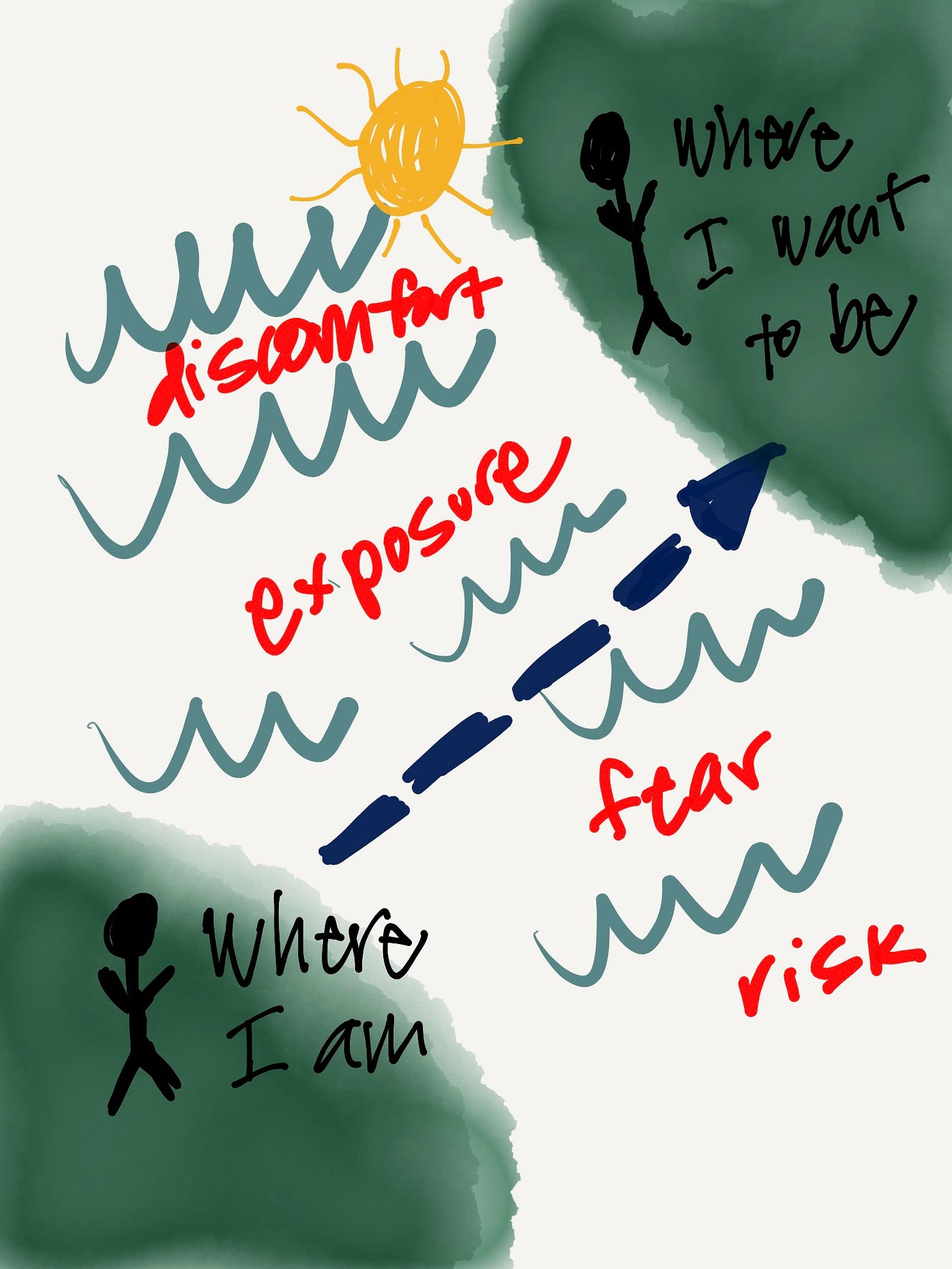We often think of courage as a heroic act - running into a burning building, standing up to a bully. Or, of conquering a phobia —public speaking or heights.
But what about the other type of courage — less dramatic but essential for moving towards the things we most want in life?
The courage to leave (or begin) a partnership; the courage to launch (or close) a business; to make the sales call; to have the difficult conversation; to ask for help; to make a decision that we know will upset or disappoint others?
THIS IS EVERYDAY COURAGE.
It is simply the ability to act (discomfort) versus avoid (comfort).
It seems straight-forward but careful there -- avoidance is a wolf in sheep’s clothing. It doesn’t look like fear. It can look like any number of these:
Distraction
Addictive behaviors (ie. social media, food, alcohol, shopping etc.)
Prioritizing the wrong things (ie. a calendar loaded with tasks)
Looking for one more course/training/certification/survey/book
Procrastination
Compulsive busyness
Constant improvement schemes
Perfectionist tendencies
Waiting for different conditions (ie. when the website is done, when the kids are in school)
FROM THE LAND OF COMFORT TO THE OTHER SIDE
The drawing above is one that I often make with clients, and it’s one that helped me at a time of great change in my life (I even carried a tattered copy of it in my wallet for several years). I was in the process of selling a business that I had co-founded, grown and managed for more than a decade, and simultaneously going through a divorce. The ground beneath me was shifting and even though I could see what I wanted on the other side, I was really scared.
I knew I would have to get into the cold and choppy water and swim for my life to get to the other side. Countless times (countless!) I started and turned around, but each time I could go a little further until I finally made it.
COURAGE ISN’T ALL OR NOTHING.
And that’s the whole point. We can build it through small daily acts. We don’t have to do it all at one time. We can practice, get stronger and go further. It can be developed one small act at a time.
BUILDING THE COURAGE MUSCLE
Here are some tools that I use for myself and with clients:
Find role models: Look for role models of this type of everyday courage in your own life. I’m not talking here about the Nelson Mandela-type-of-role-model. Look for friends and colleagues who have grown through adversity. Make a list and remind yourself of them often.
Look straight at it: Start to build courage by looking straight at what feels uncomfortable. Don’t look away. Sit with it. It’s just a feeling. It’s not as solid as it seems. Feelings come and feelings go. So often fear is not of the thing itself, it’s the discomfort that arises from the idea of feeling fear (in other words, our fear is often the fear of feeling fear – this is a whole other topic for another post).
Practice daily: Everything is practice. Lean into it: ask yourself daily what is one small action that you have been avoiding? It can be making a call, doing the accounting, saying you’re sorry to someone. Commit to doing something small every day that scares you and do it. Congratulate yourself after you’ve done it.
Build language scaffolding: Practice difficult conversations in advance. Think of language as scaffolding. Find words and phrases that feel authentic to you and that can help you with difficult conversations. (Please DM me if you’d like some examples that I’ve found helpful.)
Take care of your life force: Be good to your physical body, your energy, and your connection to spirit. You are innately capable of handling what arises in the moment.
Everyday courage has a compound effect. The path toward what we want (over there!) rarely runs through easy territory (ok, never). At some point, we will have to get in the water and swim. But by committing to a daily practice, we gain strength to navigate to the other side.





This is lovely and helpful. One day a time!